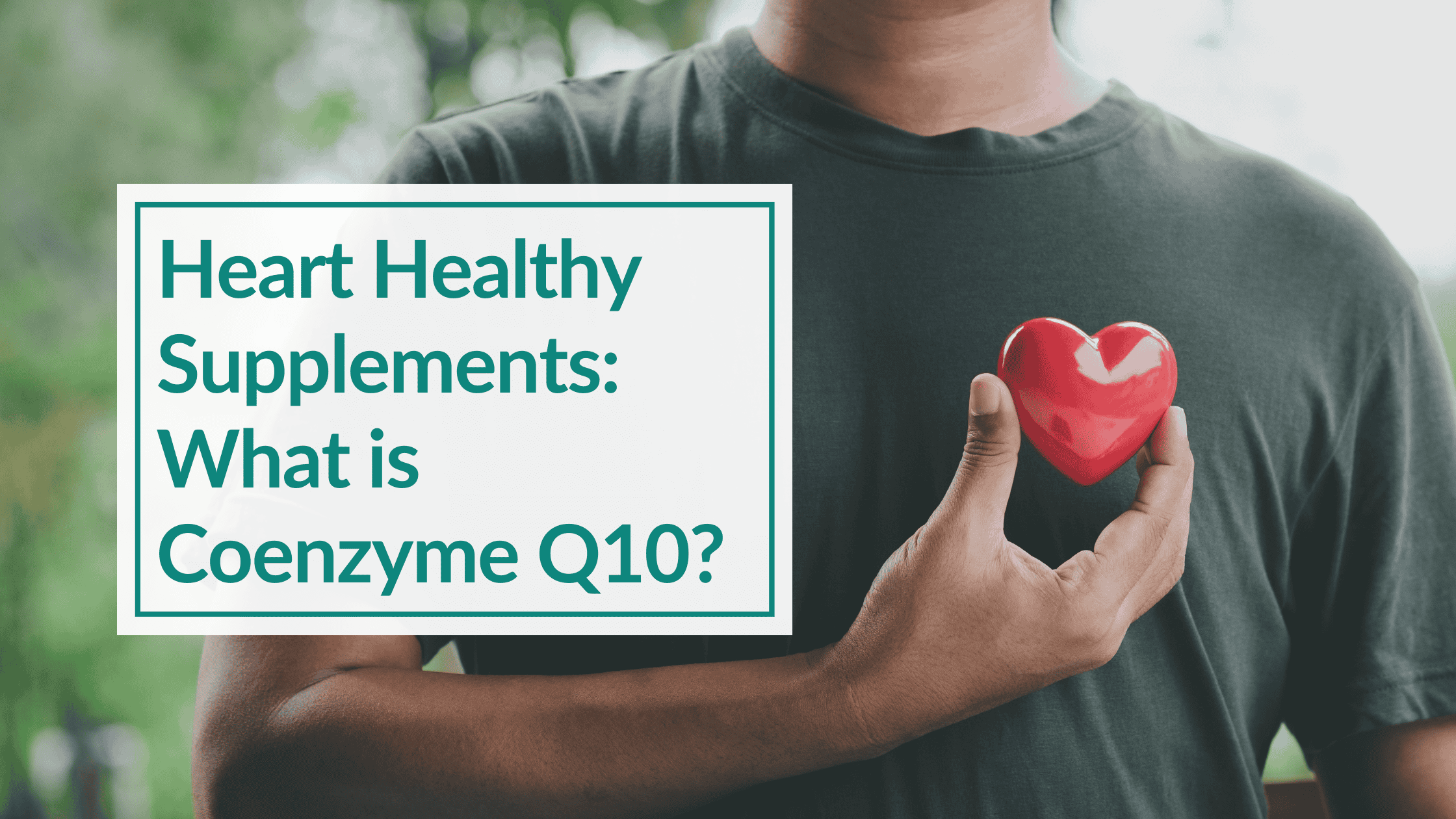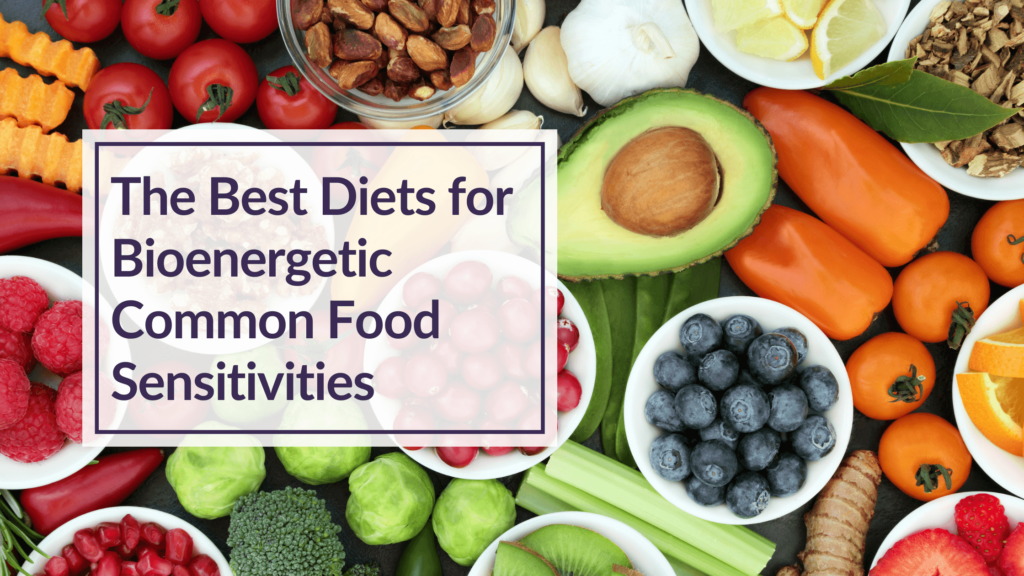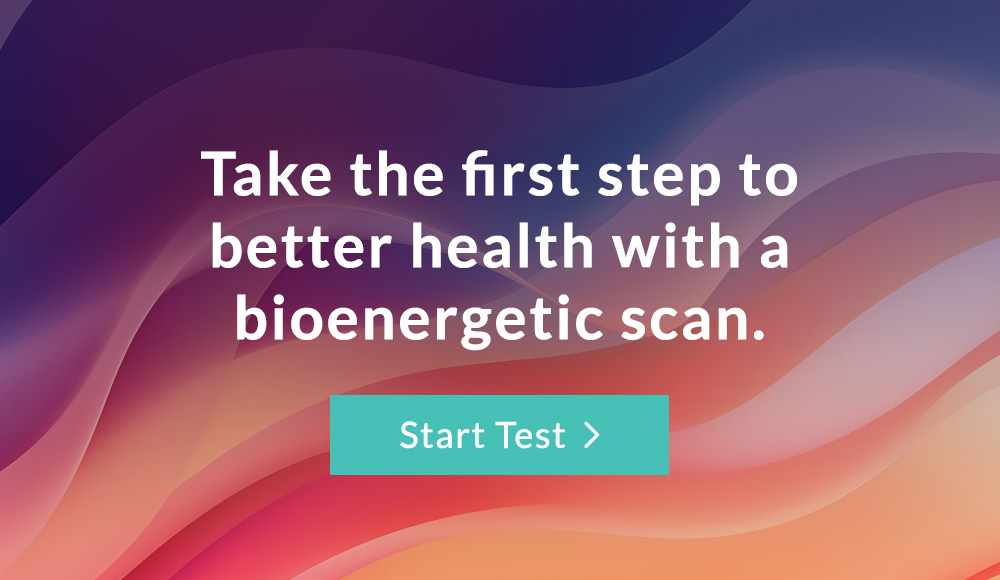
What is Coenzyme Q10 as a Heart Healthy Supplement?
One hidden player that powers your body and your Cardiovascular System is Coenzyme Q10 (CoQ10). Your body cannot function without Coenzyme Q10. This antioxidant is needed by all cells. From boosting energy levels to supporting heart health, it seems this coenzyme has a lot to offer.
Is Coenzyme Q10 – a heart-healthy supplement worth all the hype?
CoQ10 was discovered in 1957 and has been noted in the scientific literature as a significant antioxidant, supporting many health issues and body systems.
Exploring the Science: What is Coenzyme Q10?
Coenzyme Q 10, or ubiquinone or CoQ10, is a naturally occurring compound in your body. It’s found in every cell and is integral to their normal functioning. Plants also have CoQ10. The Encyclopedia of Nutritional Supplements, authored by Michael T. Murray, ND., notes that vegetarians have a considerably higher level of CoQ10 than omnivores (1).
CoQ10 is a fat-soluble molecule, which means it is stored in parts of the cell that contain fats – mainly the mitochondria.
Fun Scan Fact: if your mitochondria are stressed, this will show up as stress in your Cellular Metabolism Dial.
These mitochondria are often called the ‘powerhouses’ of the cell, as they are responsible for producing energy. CoQ10’s primary role lies in this energy production process, but its functions extend beyond that, as we will see. It makes sense that when taking a supplement form of CoQ10, it should be taken with fat or be a supplement where fat is part of the supplement.
What is Coenzyme Q10 and it’s Role in the Body?
Coenzyme Q10’s role in your body is multifaceted. It’s involved in the creation of adenosine triphosphate (ATP), which is the primary source of energy for your cells and is in those mitochondria. Since every cell has mitochondria, this makes CoQ10 essential for the functioning of all your body’s systems, especially those that require a lot of energy, such as your heart, liver, and kidney.
Michael Murray, ND., notes that the primary use of CoQ10 is one of the top heart-healthy supplements.
What is Coenzyme Q10 as an Overall Health Support?
Because of the role in energy production and antioxidant protection, CoQ10 has numerous health benefits. It can:
- Help to boost energy levels
- Improve heart health and support the Cardiovascular System.
- Support recovery from exercise.
- Support the Nervous System.
Research has also suggested that Coenzyme Q10 may help with managing the symptoms of chronic illnesses such as fibromyalgia, diabetes, and certain types of cancer. However, more studies are needed to understand the full range of CoQ10’s potential health benefits.
The Role of Coenzyme Q10 in the Body and Energy Production
The connection between CoQ10 and energy production lies at the very heart of cellular function. As part of the electron transport chain in the mitochondria, CoQ10 helps to convert nutrients from your diet into ATP, the energy currency of your cells. From this perspective, having good digestive health and function is imperative.
Without sufficient levels of CoQ10, your body’s ability to produce ATP may be compromised, leading to a decrease in energy levels. This is one of the reasons why CoQ10 supplementation is often recommended for individuals experiencing fatigue or low energy levels. This can go along with working on the digestive stress you may see on a Full Scan Report.
How Coenzyme Q10 Acts as One of the Top Heart Healthy Supplements
CoQ10’s role in heart health is significant. The heart is one of the most energy-demanding organs in the body, so it requires a constant supply of ATP. By aiding in ATP production, CoQ10 supports the heart’s high energy needs and the Cardiovascular System in general.
Moreover, as an antioxidant, CoQ10 helps to protect the heart and blood vessels from oxidative stress, which can lead to heart disease. Several studies have suggested that CoQ10 supplementation may improve heart health in people with certain heart conditions, and it may help to manage symptoms of heart failure.
The highest concentration of CoQ10 is observed in the tissues of the heart, kidneys, liver, and muscles. According to this article, “three out of four patients with heart diseases have low levels of CoQ10.” The study also observed that in people with ischemic heart disease and dilated cardiomyopathy, their CoQ10 levels were much lower (2).
The benefits of Coenzyme Q10 include support for these:
- Hypertension.
- Type 2 Diabetes.
- Metabolic Syndrome.
- Cardiovascular disease.
All are related to the Cardiovascular System.
There are several theories as to why CoQ10 benefits health health:
- Antioxidant effects. Oxidative stress causes cellular damage. ROS or reactive oxidation species are molecules that naturally form with cellular processes. The body works to balance these tiny molecules, which can build up with stressors. (3)
- Cardiac contractions require energy. There is a theory that myocardial failure or heart failure may be caused by the reduced production of energy in mitochondria. As mentioned before, COQ10 is the main component in the transport of electrons necessary for ATP production.
- Anti-inflammatory effects. Cardiovascular diseases are related to chronic inflammation.
- Anti Aging. CoQ10 is said to positively influence age-affected cellular metabolism and combat signs of aging in the skin. (4)
It could also have potential benefits for neurodegenerative diseases like Parkinson’s and Alzheimer’s. This is why you may see Coenzyme Q10 show up on a Full Scan, in relation to the Nervous System, or on our new Brain scan.
Research has also suggested that CoQ10 may help with managing the symptoms of chronic illnesses such as fibromyalgia, diabetes, and certain types of cancer. However, more studies are needed to understand the full range of CoQ10’s potential health benefits.
Potential Side Effects and Precautions of Coenzyme Q10
While CoQ10 is generally considered safe, there are some potential side effects and precautions to be aware of. Some people may experience mild side effects such as stomach upset, loss of appetite, nausea, or diarrhea. However, these side effects are usually temporary and disappear as the body adjusts to the supplement. One of the things our practitioners will stress in a consultation is the need to start low and slow on supplements.
It’s also important to note that CoQ10 may interact with certain medications, including blood thinners and certain types of cholesterol-lowering drugs. If you’re taking any prescription medication, it’s advisable to consult your healthcare provider before starting CoQ10 supplementation, or anything else!
We do not diagnose or treat disease with bioenergetic testing. We support stress in body systems and help you bring your energy back into balance.
How to Increase Coenzyme Q10 Levels in Your Body
While your body naturally produces CoQ10, the production levels decline with age. Therefore, it’s important to ensure you’re getting enough of this vital compound either through your diet or supplementation. Foods rich in CoQ10 include organ meats, fatty fish, and some whole grains (4).
Hearts from beef, chicken, and pork have high CoQ10.
As we mentioned, you can always supplement with CoQ10, and the liposomal form from DesBio is one of our recommendations.
What are the Top Takeaways for Coenzyme Q10?
Keep Coenzyme Q10 on your radar as you think about protecting your heart and Cardiovascular System, and as you move through the aging process! It may be an important supplement, along with diet, for women and men going through the andropause, and the menopause transition.
In the meantime, it’s safe to say that maintaining adequate levels of CoQ10 is beneficial for your overall health.
Is there a “perfect” diet for Coenzyme Q10? It seems with the variety of foods that both vegetarians, and omnivores prefer, adding CoQ10 rich foods to your diet should be fairly easy.
Curious about food choices?
Read our post, The Best Diets for Bioenergetic Common Food Sensitivities.
Sources:
- Encyclopedia of Nutritional Supplements: The Essential Guide for Improving Your Health Naturally, Michael T. Murray MD
- Coenzyme Q10 in Cardiovascular and Metabolic Diseases: Current State of the Problem
- Reactive oxygen species – sources, functions, oxidative damage
- Coenzyme Q10: The essential nutrient
DISCLAIMER: Balanced Health, LLC/CBH Energetics and any parent, subsidiary, affiliated or related entities and companies do not provide medical advice or services. This post and the bioenergetic products and services offered by Balanced Health, LLC/CBH Energetics including, but not limited to, bioenergetic tests, bioenergetic scans, bioenergetic reports and related products and services (collectively the “Bioenergetic Products and Services”) are designed for educational and informational purposes only and are not intended to diagnose, treat, cure, or prevent any disease, condition, complaint, illness or medical condition and are not a substitute for professional services or medical advice. Testing is not used for the purpose of obtaining information for the diagnosis, prevention, or treatment of disease or the assessment of a health condition or for identification purposes.


